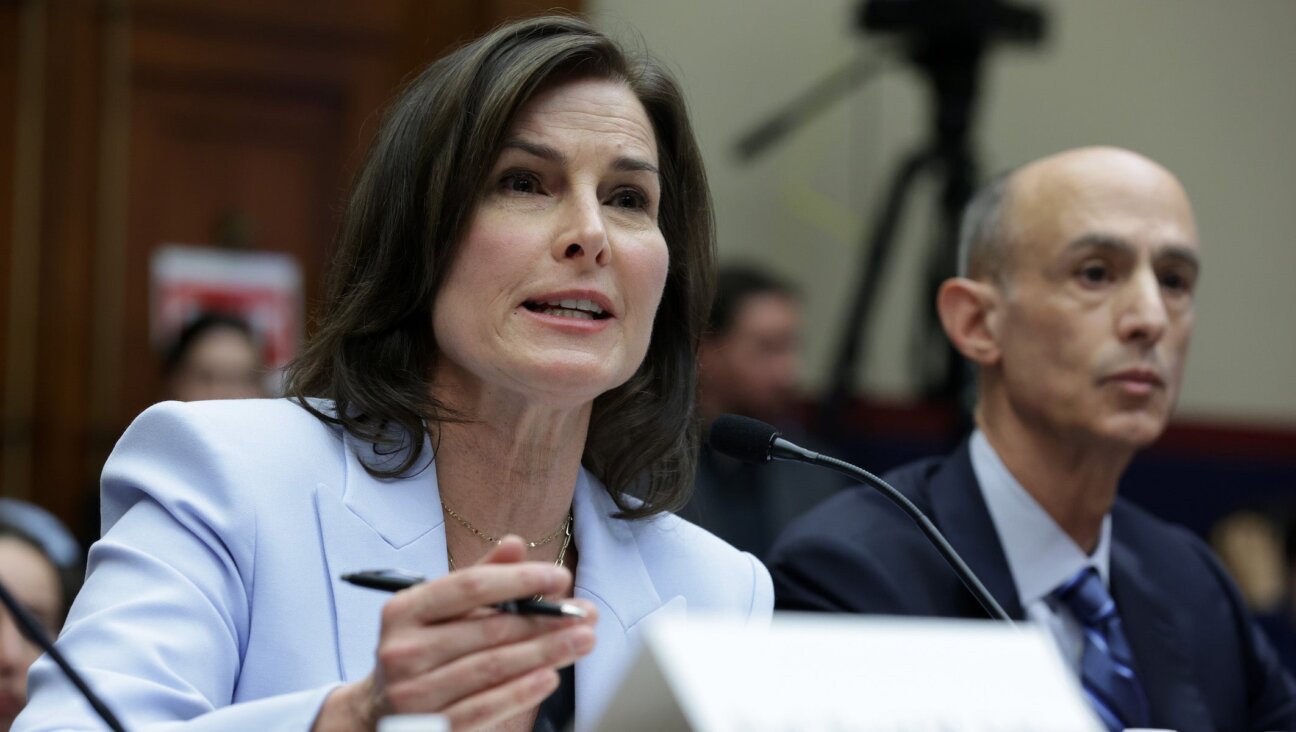For This Israeli Settler, Zionism Isn’t Nearly Radical Enough

Graphic by Angelie Zaslavsky
Yom Ha’atzmaut, Israel’s Independence Day, is an opportunity to take stock of where Israel has been and consider where we’re headed. Geopolitics being as they are, there’s a reasonable tendency to limit the debate to those within the mainstream. But this year may present an opportunity to challenge standard operating procedure.
2017 marks 50 years since Israel’s return to the region of Judea-Samaria/West-Bank. The TALK17 project has seized the day, inviting 50 speakers to deliver weekly TED-style presentations, thereby providing a platform to otherwise muffled Israeli and Palestinian voices from the region. Whether onlookers are curious or dismissive, these diversified voices represent many of the forces that are shaping Israel’s long term trajectory.
One of these speakers, Yehuda HaKohen, prides himself on residing beyond consensus. Living in a disputed region with his ear to the ground, his unconventional ideas provide the mainstream viewer with thought provoking insight.
For starters, Yehuda considers himself a post-Zionist. That may come as a surprise to some, who assume that his place of residence in Bet-El -– an Israeli settlement located adjacent to Ramallah –- indicates that he’s an ultra-Zionist. But HaKohen clearly considers Zionism a passé movement of yesteryear.
HaKohen believes that Israel outgrew its narrow nationalist ideology back in 1967. With the reclamation of territory came the need to undergo a fundamental transition, allowing Israel to develop, define and articulate its purpose among the family of nations. Needless to say, this revolutionary overhaul has yet to take shape.
On the path to a new, authentic Israeli ethos, HaKohen rejects the two-state-solution, the desire among Israeli elites to become part of the West and the involvement of foreign governments in the conflict. He believes that these three no’s are necessary means towards a new “Hebraic” ideology. The ideology, he explains, will make at least one significant game-changing contribution; it will pave the way to a sustainable peace.
For the pro-Palestinian activist, long committed to a particular construct that equates Israeli land concessions with peace, HaKohen’s ideas and recommendations can seem disorienting at first. But the attentive listener will note a coherent, if unfamiliar, approach that undermines the superficiality of old-school two-state jargon.
HaKohen wants to see the West out of Israel: no American money, no American dictates. He sees the Semitic Jewish people as an inherent and organic part of the Middle East while looking to further clarify our singular character. And herein, of course, lies his game-plan; once Israelis and Palestinians are both free to fully explore the nature of their people-hoods, the two populations will be able to make room for one another, to live side by side and, ultimately, synergize.
His theory points to essential, deep seated flaws that have influenced the past 50 years of traditional Zionist thinking. For example, both Israelis and Palestinians, he observes, are fighting what he calls “the fantasy of the other.” It just may be that the historic and cultural premises of the conflict are flawed, just as classic attempts to find a remedy are pushing us in the wrong direction.
Is the success of one population necessarily the downfall of the other? Is it possible that both sides can move forward, side by side, as protagonists of the same story?
Although TALK17 presentations are only brief introductions to ideas and perspectives, they provide the viewer with enough material to think further and ask critical questions. Personally, I’m pleased that we gave Yehuda HaKohen the floor. But there’s a central element of his argument that I have yet to come to grips with.
My question is whether the shift from Zionism to Post-Zionism requires a conceptual revolution. I recognize that the extremists who are ready and willing to kill and die for their beliefs must be taken into consideration, but I wonder if they are driving change or delaying it.
I want to believe that Israel is coming of age, that this is a gradual process and that a natural ideological evolution is both sufficient and desired. As I see it, Yehuda HaKohen’s long game is the bedrock of a healthy regional horizon; we need to appreciate that Israelis and Arabs will continue living side by side, and substantiate a win-win climate for everyone. It’s his revolutionary, liberation-aspiring, anti-colonialist terminology that makes me wonder; shouldn’t there be a softer, more amicable path forward?

























